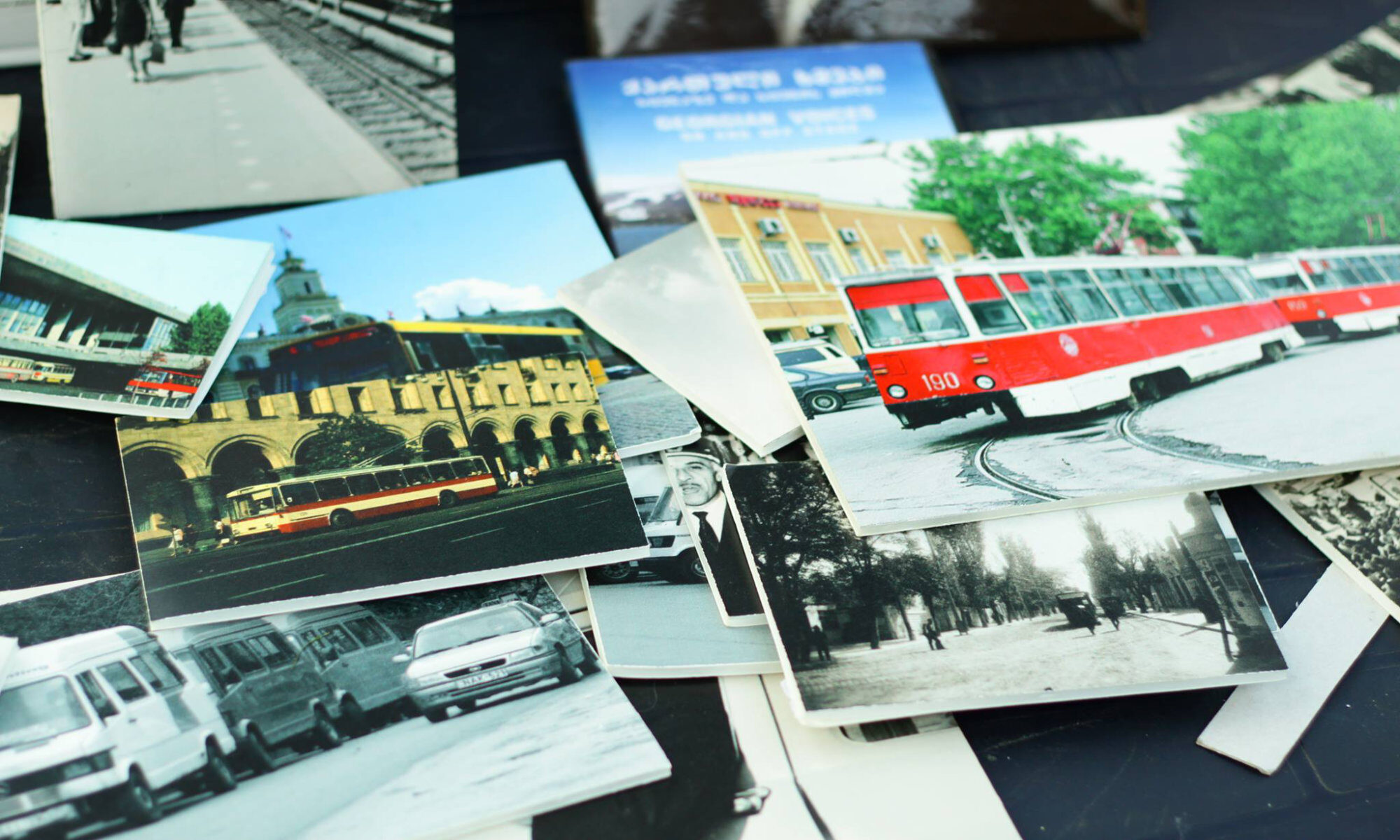Egor Muleev

Egor Muleev joined the Leibniz Institute of Regional Geography (IfL) as a researcher at November 2020. His career in transportation started at 2012 after he was invited to the Transport Economics and Transport Policy Institute in Moscow. During this period he finished his MA course in sociology and participated in very different research projects. For example, he led the first nationwide travel survey and studied bottom up initiatives in Russian general aviation. At the IfL he is working on his PhD thesis that is dedicated to the issue of knowledge production in the operation of trolleybus systems in Russia.
Further information: CV and publications on the IfL website
Lela Rekhviashvili

Lela Rekhviashvili is an early career researcher focusing on political-economy and urban geography with a regional expertise in post-socialist Eastern Europe and Eurasia, particularly South Caucasus and Central Asia. She has published widely on informal economic practices, urban transport and mobility, marketization and social embeddedness, contentious action and politics of public space. Her research increasingly focuses on contestations around infrastructure-led development and role of infrastructures in imagining and (re-)claiming socialist and capitalist modernities.
As an invited lecturer at Universities of Jena and Leipzig she teaches on ‘Regional Geography of Post-Soviet Eurasia’ and ‘De/constructing Europe: Multiple perspectives on Europeanisation’. She serves as one of the coordinators of research area ‘Self-Positioning of Eastern Europe in a New World Order’ at Leibniz Science Campus »Eastern Europe – Global Area« (EEGA).
Further information: CV and publications on the IfL website
See also: Lela Rekhviashvili on Researchgate
Lyubomir Pozharliev

Lyubomir Pozharliev is a research associate at the Leibniz-Institut für Länderkunde (Leibniz Institute for Regional Geography, IfL) in Leipzig, Germany, within the CoMoDe project. In the last three years, he was a postdoctoral researcher within SPP 1981 Transottomanica, funded by the German Research Association (DFG). He received his doctorate in history and cultural studies (2018) from Justus-Liebig University, Giessen, where he is still working and teaching at the Department of Eastern European History. He holds a BA in Sociology (2009) from the University of Sofia, and MA in Comparative History of Central, Eastern and Southeastern Europe (2012) from Central European University, Budapest, Hungary.
His main interests are in cultural history of infrastructure, technology and mobilities in the long 19th, as well as in 20th century after 1945. Further expertise he offers in theories and history of socialism as well as post-socialism, nationalism and peripheries. He is also working on media research focused on newsreels and historical video testimonies. Pozharliev’s monograph “The Road to Socialism. Transport Infrastructure in Socialist Bulgaria and Yugoslavia (1945–1989)” will be published by Vandenhoeck&Ruprecht this year and will be accessible in hard and online copy. He continues working on his second book with preliminary title “Transcultural Mediators, Strategies and Entangled Modernities: Transportation and Infrastructure in the Imperial Ports of Odessa and Varna in the 19th Century.”
Further information: CV and publications on the IfL website
Mariya Petrova

Mariya Petrova is a doctoral researcher in the project and joined the team in January 2021. She is generally interested in urban infrastructures, in the forms of material, political and social complexities they embody and notions and visions of modernity they represent.
In her research she is studying public transport infrastructures and corresponding reforms in todays’ Uzbekistan, looking at how the system of public transport and public mobility is shaped and transformed by different actors in the current modernization discourse.
In her previous studies she focused on different housing forms, building and repair cultures in Soviet Uzbekistan, particularly interested in the encounter between Soviet modernization ideas on housing and infrastructure and local climatic and traditional idiosyncrasies, investigating how they influenced and transformed each other. As a research associate in the Project “Global History of Technology, 1850-2000,” at the TU Darmstadt (2018-2020) she co-authored several publications and published a short monography based on her MA-thesis.
Further information: CV and publications on the IfL website
Stella Marie Koehler

Stella Koehler is a student assistant at the CoMoDe project. She joined the team in October 2022 and has since then supported in all kinds of endeavors, primarily with the organization of conferences co-organized by the research group, trhough maintaining the website and assisting with research. She studies Cultural Sciences, Urban Spatial Studies and Geography at Leuphana University Lüneburg and is currently writing her Bachelor’s thesis on Autonomous public transport in Germany, which doubles as a research project together with Wladimir Sgibnev and Karol Kurnicki for IfL’s Nationalatlas Aktuell. Next to “Robo-Buses”, she is particularly interested in the cultural and spatial manifestations of capitalism in an urban context, feminist critical geography, cultural organization – and Sci-Fi.
Wladimir Sgibnev

Wladimir Sgibnev is senior researcher at the Leibniz Institute of Regional Geography (IfL), where he is coordinating the research group on Mobilities and Migration and leading the Leibniz Junior Research Group “Contentious Mobilities through a decolonial lens”. He defended his PhD degree at Humboldt University’s Central Asian studies department. There, he examined the social production of space in urban Tajikistan. Recent research projects addressed survival strategies in peripheral mining cities, informal mobilities, and reconceptualisations of public transport as public space. Within CoMoDe, he is particularly interested in how knowledge about public transport travels, transforms and, some day, morphs into marshrutkas, subways, or Uber shuttles. He spends most of his pastime looking at housing estates out of a tramway window.
Further information: CV and publications on the IfL website
